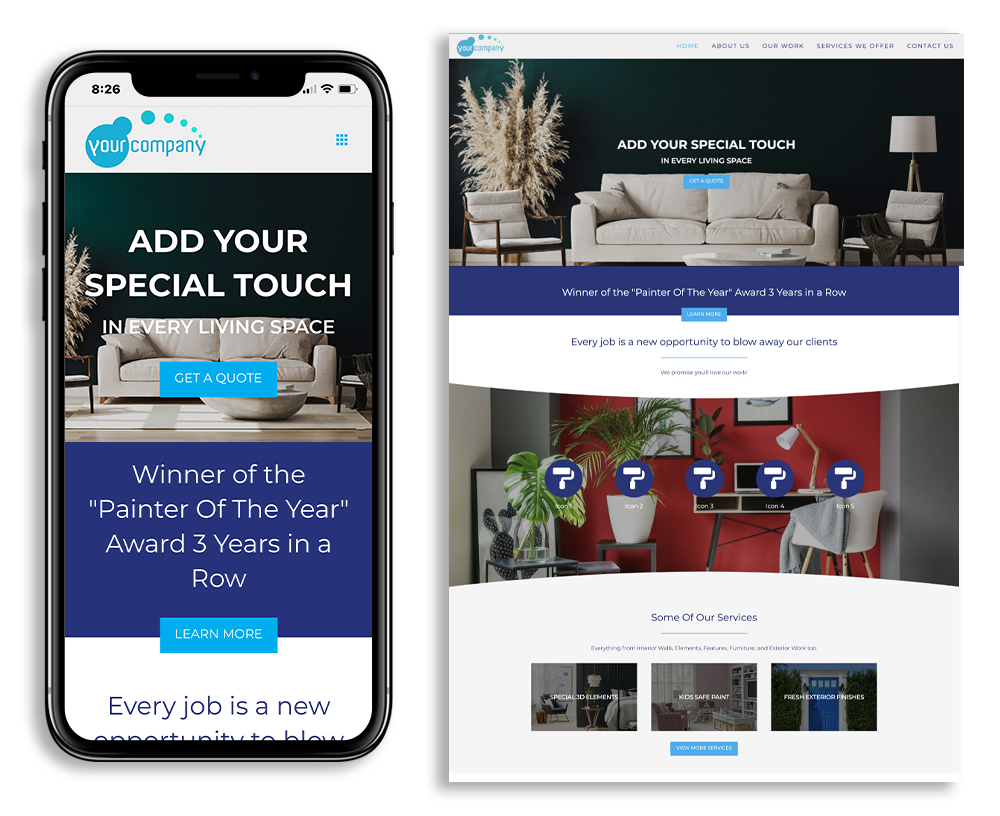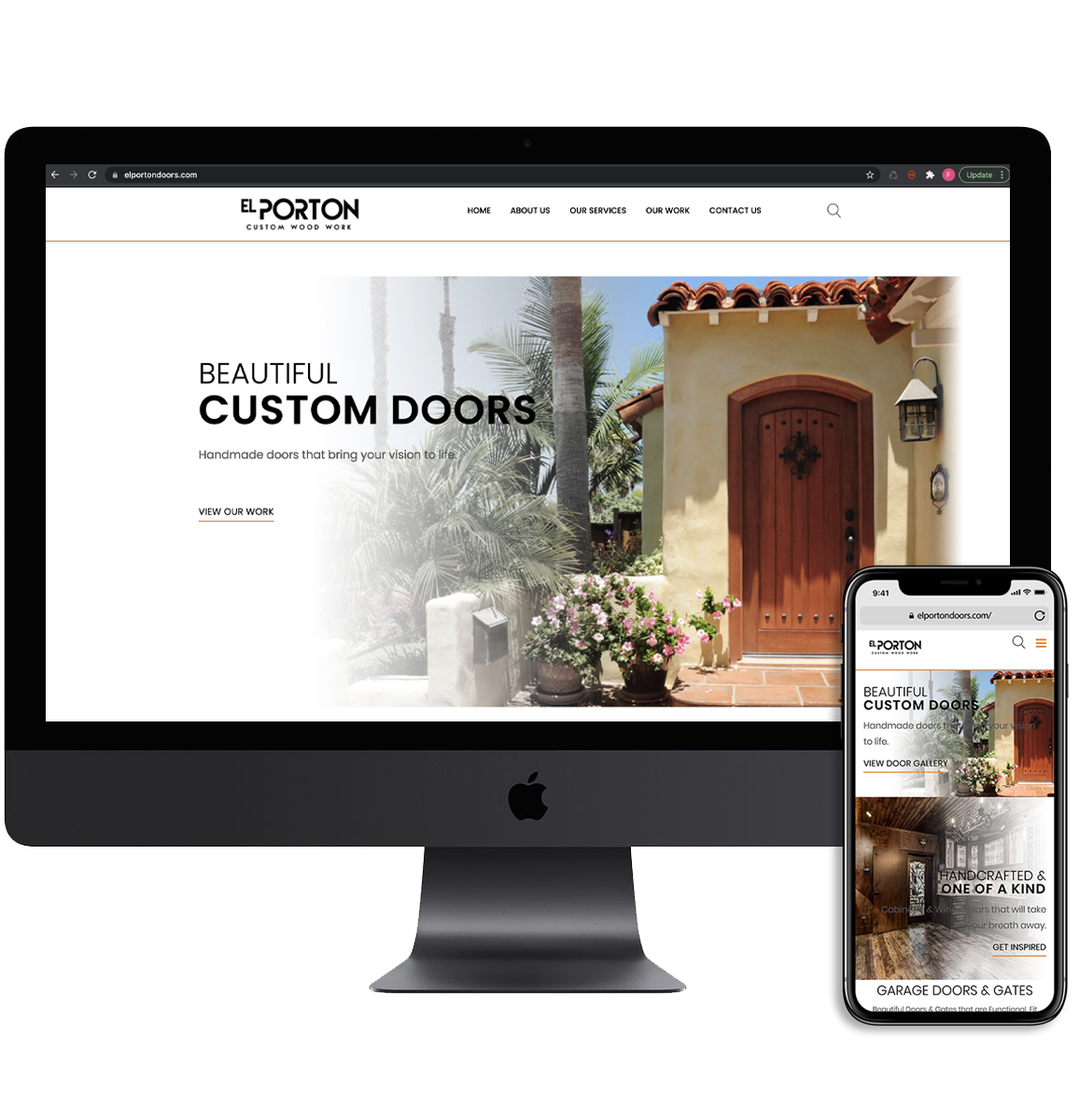
How to Create a Website that Reflects Your Brand’s Identity
In today’s digital age, a website is often the first point of contact between a brand and its potential customers. Creating a website that embodies a brand’s identity can be a daunting task, but it’s an important one that can help establish a strong online presence and make a lasting impression on visitors. In this blog post, we’ll explore the key elements that make up a website that reflects your brand’s identity and provide actionable tips and best practices to help you create a website that truly represents your brand.
Importance of Creating a Website that reflects your Brand’s Identity
Your brand’s identity is more than just your logo and color palette. It encompasses the essence of your business, including your values, mission, and vision. Your website should be designed to showcase these elements and communicate them effectively to your audience. Here are some key reasons why creating a website that reflects your brand’s identity is important:
- By creating a website that reflects your brand’s identity, you can showcase what makes your brand unique and set yourself apart from others in your industry.
- A website that reflects your brand’s identity can help build trust with your audience. When your website is consistent with your brand’s messaging and values, it creates a sense of authenticity that can help establish a connection with your audience.
- A well-designed website that reflects your brand’s identity can create a memorable user experience. By incorporating your brand’s personality into the design, you can make your website more engaging and increase the chances of visitors returning in the future.
- Your website is often the first point of contact with potential customers. Creating a website that reflects your brand’s identity can help build brand recognition and make it easier for people to remember your business.
- Your website is an essential marketing tool. By creating a website that reflects your brand’s identity, you can ensure that it aligns with your marketing efforts, making it easier to promote your business and attract new customers.

The Key Elements of a Website that Reflects Your Brand
These elements are critical to creating a website that communicates your brand’s essence and resonates with your audience. Here are some of the most important elements:
- Visual Design: The website’s visual design is the first thing visitors notice when they arrive at your site. Your website’s design must align with your brand’s identity, including your color palette, typography, imagery, and other visual elements. These design elements should be consistent across your website to create a cohesive and memorable user experience.
- Messaging: The messaging on your website should reflect your brand’s voice and tone. It should be consistent with your other marketing materials, including your brand messaging, tagline, and mission statement. Your messaging should also be clear, concise, and easy to understand so visitors can quickly grasp your brand.
- User Experience: A website that reflects your brand’s identity should also provide a positive user experience. This includes easy navigation, clear calls to action, and a clean layout. Your website should be intuitive and easy to use, allowing visitors to find what they need quickly and efficiently.
- Content: Your website should be informative, engaging, and valuable to your audience. It should align with your brand’s messaging and reflect your brand’s values. Your content should also be optimized for search engines, including relevant keywords and phrases to help your website rank higher in search engine results.
- Functionality: The functionality of your website is also critical to creating a positive user experience. Your website should load quickly, be mobile-friendly, and be optimized for all devices. It should also be secure, with features like SSL encryption and regular backups.
Common Mistakes in Creating a Website
Even with the best intentions, it’s easy to make mistakes that can undermine the effectiveness of your website. Here are some of the most common mistakes to avoid when creating a website:
- Not having clear goals: One of the most common mistakes in creating a website is not having clear goals for what you want to achieve. Your website should have a clear purpose: generate leads, sell products, or provide information. Without clear goals, your website may lack direction and fail to deliver results.
- Neglecting user experience: Visitors are likely to leave quickly and never return if your website is difficult to navigate or use. Make sure your website is designed with user experience in mind, with clear navigation, easy-to-read content, and a clean, uncluttered layout.
- Ignoring search engine optimization: Search engine optimization (SEO) is essential for driving traffic to your website. If your website is not optimized for search engines, it may not rank well in search engine results, making it difficult for potential customers to find you. Make sure your website is optimized for SEO, with relevant keywords, meta descriptions, and other elements that help search engines understand what your website is about.
- Focusing too much on design: While design is important, it’s not the only thing that matters when creating a website. Focus on creating a website that delivers a great user experience and provides value to your audience.
- Neglecting mobile optimization: With more and more people accessing websites on their mobile devices, optimizing your website for mobile is essential. If your website is not mobile-friendly, visitors may have trouble viewing and using it on their phones or tablets, leading to frustration and a negative impression of your brand.
- Not testing your website: Try it on different browsers, devices, and screen sizes to ensure it looks and functions correctly for all users.

Benefits of Hiring a Web Design Company for your Business
While it’s possible to create a website on your own, hiring a web design company can offer a range of benefits. Here are some of the main advantages of hiring a web design company for your business:
- Professional design: Web design companies have the experience and expertise to create professional, visually appealing websites tailored to your brand’s identity. This can help establish a strong online presence and make a great first impression on potential customers.
- Customization: A web design company can create a website customized to your business’s needs and goals. They can work with you to understand your unique requirements and develop a website that meets those needs.
- User experience: A web design company can create a website with a positive user experience. They can design a website that’s easy to navigate, loads quickly, and is optimized for all devices, including mobile phones and tablets.
- Search engine optimization: A web design company can help ensure your website is optimized for search engines, which can improve your search engine rankings and drive more traffic to your site.
- Time-saving: Hiring a web design company can save you time, allowing you to focus on other aspects of your business. They can handle all aspects of website development, from design to content creation, leaving you free to concentrate on running your business.
- Cost-effective: While hiring a web design company may seem expensive, it can be cost-effective in the long run. A well-designed website can attract more customers and generate more revenue, outweighing the initial cost of website development.
- Support and maintenance: A web design company can provide ongoing support and care for your website, ensuring it remains up-to-date and functioning properly. This can help prevent website downtime and ensure a seamless user experience.
What to look for in a Web Design Company
When choosing a web design company for your business, several factors must be considered. Here are some of the key things to look for in a web design company:
- Portfolio: A web design company’s portfolio is a great way to see its work and understand its style and capabilities. Look for a portfolio that showcases a range of designs and styles, and pay attention to whether they have experience designing websites in your industry.
- Experience: Look for a web design company with expertise in creating websites for businesses like yours. Experience is important because it means the company has encountered and solved common website design problems and can create a website tailored to your business’s unique needs.
- Reputation: Check out online reviews and testimonials from past clients to understand the web design company’s reputation. A good reputation indicates the company’s track record of delivering high-quality work and excellent customer service.
- Communication: Look for a responsive company communicates clearly and regularly throughout the design process.
- Services: Consider the range of services the web design company offers. Do they provide a full range of web design services, including development, SEO, and ongoing support and maintenance? Do they have experience with e-commerce and content management systems? Ensure the company can meet your website design and development needs.
- Price: Of course, price is an important factor to consider. Look for a web design company that offers transparent pricing and a clear breakdown of services and costs. Be wary of companies that offer very low prices, as they may not deliver the quality of work you’re looking for.
Conclusion
Remember to keep your target audience in mind and strive to create a website that is aesthetically pleasing and easy to navigate. With the tips and best practices outlined in this blog post, you’ll be well on your way to creating a website that embodies your brand’s identity and helps your business succeed online. At FNMNL Media, they’re passionate about helping companies to build strong online presences through custom web design and development services. Contact them today to learn how they can help bring your brand to life online.
